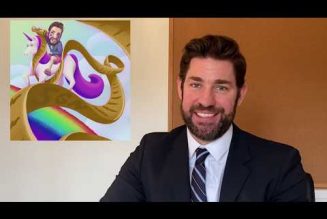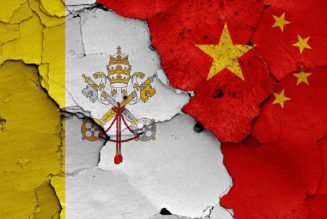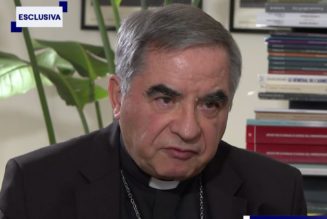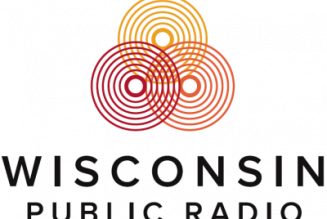
So, one month into 2022, how are your New Year’s resolutions holding up? Lost any weight? Exercising any more than last year? Given up searching on your devices for bad news—what has merited the name “doomscrolling”? Or, maybe you have forgotten what your resolutions were? Whether you have or have not been faithful so far in 2022, I’d like to suggest a resolution that’s better than all the rest.
Yes, it is bold. Yes, it will be difficult to keep. And yes, it will change your life. What is it? Resolve to become God.
The resolution is an ambitious one, I admit. In fact, more than being ambitious, it may strike one as sinful and even sacrilegious. But before anyone accuses this writer of heresy or blasphemy, I hasten to add that there is a right way and a wrong way to “become God.”
First, the wrong way. For, we have to ask: Wasn’t wanting to be like God what got us into this mess of a sinful world in the first place? (Satan: “Hey, guys, want some of this God stuff?” Adam and Eve: [looking at each other (and not God)]: “Sure thing!”) No, despite our First Parents’ wrong-headed (and wrong-hearted) decision to jump ahead of God’s plan, it’s not entirely the case that we were only meant to be merely human in our existence.
And so, there is also a right way to become like God. “In the beginning,” we read in the Book of Genesis, God already made us in his image, after his likeness (Genesis 1:26). We were thus born to bear his divine likeness from the start. But more than merely reflecting this image in the natural world, we were made to grow in it, sharing in it more and more—such was our destiny. “Created in a state of holiness,” says the Catechism of the Catholic Church, “man was destined to be fully ‘divinized’ by God in glory” (398). In fact, the Serpent could only tempt our first parents with their greatest good—becoming God.
Personally, I can (and do) fall for all sorts of things that are far from my greatest good: food, drink, distraction, laziness, etc. Adam and Eve would not fall for such trifles in their prelapsarian state, but only for that which they were made for—divinity. Hence, this ultimate object of their desires—being God—was the perfect bait for Satan’s lie.
Why, then, were they guilty of wanting what God had called them to be? St. Maximus the Confessor (d.662) explains that Adam’s sin was not “wanting to be like God,” but wanting divinity “without God, before God, and not in accordance with God” (see CCC, 398). They went about divinization the wrong way. There really is a right way and a wrong way to become God: we have to practice, practice the faith and virtues, according to God’s design for us. But become God we must. This seems the sense of Jesus’ words within his priestly prayer at the Last Supper, that “they may all be one, as you, Father, are in me and I in you, that they also may be in us” (John 17:21); and also of St. Peter’s second letter: “he has bestowed on us the precious and very great promises, so that through them you may come to share in the divine nature” (2 Peter 1:4).
Still, I can’t feel that this life’s goal of “becoming God” is out of character. I knew that some ancient, and mostly Eastern, Church Fathers (like Maximus the Confessor, quoted above) said such things a long time ago. What I’ve come to appreciate over recent Advent and Christmas seasons is that divinization—sharing in the divine nature—is very much at the heart of the Church’s concern for her members, even today. The Office of Readings in the Liturgy of the Hours is loaded with patristic and ecclesial exhortations to divinization at this time of year. For example, Blessed Isaac of Stella (died around 1170 in France) says that Christ “became the Son of man and made many men sons of God” (Saturday of the Second Week of Advent). On Christmas day, Pope Leo the Great (r.440-461) urges us, “Christian, remember your dignity, and now that you share in God’s own nature, do not return by sin to your former base condition.” Bernard of Clairvaux (d.1153) says of the Christmas gift that Christ “has given us a most wonderful proof of his goodness by adding humanity to his own divine nature.” For the reading on New Year’s Day, which the Church celebrates as the Solemnity of Mary, Mother of God, St. Athanasius (d.373) teaches, “By taking our nature and offering it in sacrifice, the Word was to destroy it completely and then invest it with his own nature.” And as if to summarize each, St. Augustine (d.430) simply says that “God became man so that man might become God” (Saturday from January 2 to Epiphany).
Christmas, then, is not simply or even primarily about cute baby Jesus in swaddling clothes surrounded by barnyard livestock and the other usual suspects (shepherds, angels, etc.)—God assuming our nature in an out-of-the-way town just south of the earthly Jerusalem. Rather, the Nativity of Our Lord is ultimately about us assuming divine nature in the heavenly Jerusalem. Too few Catholics may appreciate this truth. Monsignor Reynold Hillenbrand (1904-1979), an earlier pioneer of the American liturgical movement, says in this regard that “our thinking is so pre-incarnation” that we don’t appreciate the great gift of divine life, of divinization, that God offers us in Christ at this time of year.
But the Office of Readings around this time of year is the gift that keeps on teaching: St. Hippolytus of Rome (d.235) gives us a glimpse of what a new life in a new year—and in eternity—looks like: “Friends of God and coheirs with Christ, we shall be subject to no evil desires or inclinations, or to any affliction of body or soul, for we shall have become divine. It was because of our human condition that God allowed us to endure these things, but when we have been deified and made immortal, God has promised us a share in his own attributes…. For the sake of his own glory he has given us a share in his divinity” (Office of Readings for December 30). He calls our new divine condition a “a call to liberty” (Hippolytus, December 30), an exhortation to live post-incarnationally in freedom from fear.
So, even as you hoist back that second martini or glass of bubbly in the New Year, be sure to imbibe the new Spirit of God and let him animate the year (and years) ahead. All of us have come to realize what we have known already, that the world is a sick and fallen place, despite its creation from the heart of the Trinity—even as we also know that this same sickness requires and has a cure, which we can only find in Christ. For now is the time to realize what too many of us have overlooked for too long, that God is creating a new heavens and a new earth, with men and women alive in his image and likeness, true sons of God—indeed, Gods themselves. Happy New Year!
Join Our Telegram Group : Salvation & Prosperity









